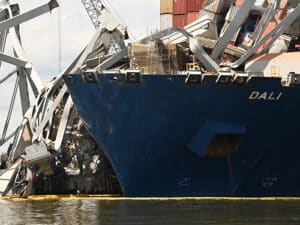
Shipping banks exposed to “decarbonization” risks
Written by Nick Blenkey
FEBRUARY 27, 2017 — “Financiers should be future-proofing investments and preparing to harness the new opportunities decarbonization will create,” says Carbon War Room CEO Jules Kortenhorst. “Even with $400 billion in global shipping debt at stake, we have little evidence this is happening. We’ve taken the first step.”
That first step is a report commissioned by the Carbon War Room from UMAS (University Maritime Advisory Services). Called “Navigating Decarbonization,” it suggests that, as a result of stricter regulation of emissions, banks holding shipping debt could find themselves facing “stranded asset” risks in the shape of ships needing major fixes to comply with the new rules.
“Risk is nothing new to the shipping industry or to the major financial institutions that bankroll it, but climate transition risk is,” says James Mitchell, senior associate for shipping with Carbon War Room. “If a newbuild financing decision is made today, that vessel will very probably have to compete under new IMO or EU policy actions before its first drydock. This work suggests that these risks will impact the market and should be considered now.”
Mr. Mitchell warns that with upcoming regulations will require significant capital investment, but says that “actions taken now by financiers, owners, and shareholders will position both individual assets and the industry as a whole for greater long-term profitability, and will ensure that the first step of decarbonization is a success.”
“Future regulation on shipping GHG is now certain. It’s just the velocity and stringency that remain unknown,” says Dr. Tristan Smith, director of UMAS. “The key takeaway from the report is for financiers and shipowers to be prepared and thus it is crucial to future-proof assets now and plan for flexibility from the onset, through for example, designing for future retrofits and using innovative financing mechanisms to deal with a variety of future scenarios.”
Download the report HERE





Leave a Reply
You must be logged in to post a comment.